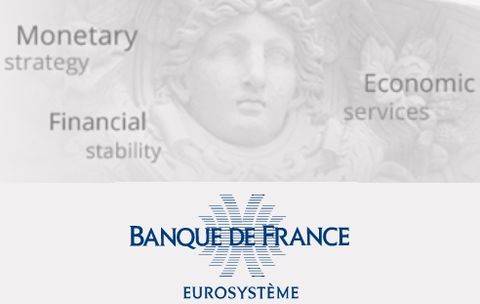Companies news • Publications
Banque de France : latest news

Please find some selected news from Banque de France’s office in Singapore:
International Conference on Statistics for Sustainable Finance – Paris, 14 September 2021, Speech by François Villeroy de Galhau, Governor of the Banque de France
(…) This subject is more topical than ever, after the dramatic weather events of this summer, from floods in northern Europe and China to heat domes and burning forests in southern Europe and North America. As statisticians and economists, you are well aware that these human and ecological dramas translate into economic losses.
(…) The development of sound climate-related data is a key ingredient if we are to meet this challenge. As the 19th century physicist Lord Kelvin put it: “When you can measure what you are speaking about, and express it in numbers, you know something about it.” Data are a pre-requisite for public authorities to design policies that account fairly for the environmental costs or benefits of economic activities. In a nutshell, accelerating the green transition requires accelerating green data.
However, there is a great challenge for statisticians and data providers: the opposition between the urgency to provide climate-relevant data, and the inevitable step-by-step process required to achieve this in a reliable, comparable and comprehensive way (…)
International Conference on Statistics for Sustainable Finance
Review of world and France travel in 2020: from annus horribilis to lasting reconfiguration?
Covid 19 has severely disrupted international travel. In 2020, the restrictions on movement that each country put in place on both traveller arrivals and departures, combined with internal measures, led to a global decrease of 74% in international arrivals and 66% in receipts. As the leading tourist destination in terms of number of travellers and the third largest in terms of receipts, France felt the full force of the shutdown of a flagship sector, losing 50% of its travel receipts (…) the tapering of restrictions in the summer limited the extent of the fall within the European Union, by contrast with travel outside the European Union, which remained very subdued. International travel looks set to undergo a lasting geographical reconfiguration involving a decline in long distance journeys. In this context, France’s market share gains compared with other European countries in 2020 remain to be confirmed.
Review of world and France travel in 2020: from annus horribilis to lasting reconfiguration?
Macroeconomic projections – September 2021
The French economy is emerging from the Covid crisis and will enter a new phase. After the strong rebound in 2021 resulting from the reopening of the economy and the support measures, GDP will gradually return to its potential level. Conditions should still be favourable at the horizon of this projection (excess household disposable savings, generally preserved financial situation of companies, recovery plan) but will therefore steadily become more dependent on the more structural drivers of growth.
- The strength of the recovery in economic activity in France is bearing out in 2021, after the historic fall in 2020. With the rapid expansion of the vaccination campaign, GDP and employment rebounded significantly in the second quarter. This momentum should continue in the third quarter according to our business surveys, and thereafter activity should remain buoyant in the fourth quarter (…)
- GDP growth is expected to stand at 6.3% in 2021 as an annual average, and 3.7% in 2022, before returning to just under 2% in 2023. Activity is forecast to return to its pre-Covid level at the end of 2021. The upward revision of our projection for 2021 since June primarily reflects a slightly stronger-than-expected rebound at the end of the first half of the year (…)
- Headline inflation (HICP) is expected to come in at 1.8% in 2021 (annual average) with more pronounced peaks, meaning that it should remain at over 2% between August and December 2021 (year-on-year). However, this significant upturn, due essentially to the effects of higher input prices for manufactured goods, should remain temporary. Annual average HICP inflation is expected to decrease to 1.4% in 2022 due to the stabilisation of energy prices. In 2023, both headline and underlying inflation are expected to stand at 1.3%. Nevertheless, the risks around this inflation forecast are titled to the upside.
- The resilience of the labour market has proved better than expected, thanks in particular to the support provided by public measures. Salaried employment thus returned to its pre-crisis level in mid-2021, although the number of hours worked per employee remained lower due to the ongoing short-time work arrangement (240,000 in full time equivalent in July). The French economy is now facing its main pre-crisis challenge: major recruitment difficulties (for half of the companies) even though unemployment remains high at 8%.


